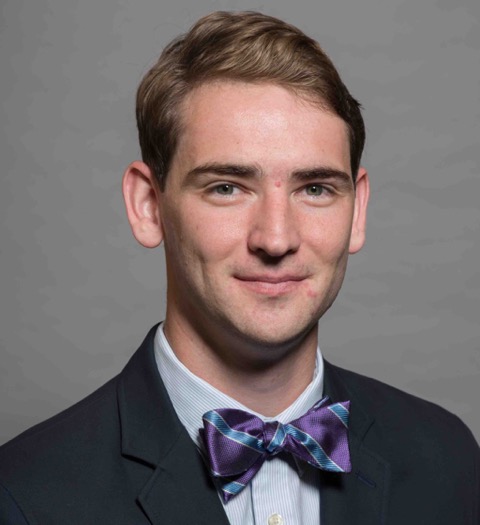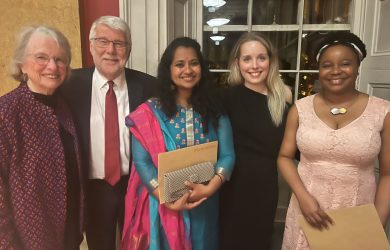News

Benjamin Cocanougher
- Alumni
- United States
- 2016 PhD Zoology
- St Catharine's College
I grew up catching praying mantises and damselflies in rural Kentucky. As an undergraduate at Centre College, I majored in Biochemistry and Molecular Biology; I spent my summers taking care of sick children at the Center for Courageous Kids and doing research in organic chemistry and neuroscience. I matriculated directly to the University of Rochester School of Medicine and Dentistry and completed my first three years of medical school. I then moved to Janelia Research Campus as a HHMI Medical Research Fellow; there I studied the neural and genetic bases of behavior. As a PhD student in Zoology, I will study adaptive behavior. All animals integrate information about past experience into future decisions; this is the basis of learning and memory. I am proposing to write a specific memory and read the memory trace in the brain. I will use the fruit fly as a model organism. By understanding mechanisms of memory storage, we can begin to investigate changes in memory formation in disease; this may allow us to develop rational therapies for disorders of memory formation, including autism and Alzheimer’s disease. After completing my PhD, I will return to finish my last year of medical school and pursue a career as a child neurologist and neuroscientist, using my lab to better understand the patients I see in clinic.
Previous Education
Centre College
- Share
Latest News
Gates Cambridge announces new Provost
The Gates Cambridge Trust is delighted to announce that its new Provost – its first female leader – will be Professor Eilís Ferran. Professor Ferran has a wealth of experience […]
Scholar selected as member of Junge Akademie
A Gates Cambridge Scholar has been admitted to Germany’s prestigious Die Junge Akademie. Andrea Binder is one of 10 new members to be admitted to the academy. It provides interdisciplinary and socially […]
Cairo Genizah texts ‘could illuminate the history of late Ottoman Egypt’
The Cairo Genizah – a repository of hundreds of thousands of manuscripts that the Jewish residents of Old Cairo produced and consumed in the pre-modern period – also contains hundreds […]
What accounts for humans’ higher cognitive skills?
New research shows how the human brain processes information in ways that support higher cognitive functions than animals. The study, on which Gates Cambridge Scholar Andrea Luppi [2019] is first […]
Artificial Intelligence applications in critical care
A Gates Cambridge Scholar will be presenting on his research findings at the BrainX Community Live event this week. Shubhayu Bhattacharyay [2021] will be speaking about Artificial Intelligence applications in […]
Bridging the public health data gap
When Anwesha Lahiri [2021] was doing her master’s fieldwork in India, she visited a tribal village in a remote area on top of a mountain between two districts. Only around […]
Tracing the origins of our political beliefs
What makes some people more vulnerable to extremism than others? How do we build cognitive resilience against extreme ideologies? And how does the brain react to misinformation on social media? […]
A leading woman in STEAM
A Gates Cambridge Scholar has been selected as one of the 75 leading women in Science, Technology, Engineering, Arts and Mathematics in India. Yama Dixit will feature in the second edition of […]
Tackling the obesity epidemic in Africa
When she left school, Paula-Peace James-Okoro [2022] intended to become a medical doctor, but after starting a degree in Biochemistry she discovered a passion for the subject and for using […]
Triple win for Bill Gates Sr. Prize
For the first time three Gates Cambridge Scholars are sharing this year’s Bill Gates Sr. Prize in recognition of their outstanding research and social leadership. Kim van Daalen, Reetika Subramanian […]

















